If you ever find yourself looking at string gauges, you’ll notice jazz sets, or recommendations for jazz guitarists, are heavier than other sets. Do these sets really make that much of a difference, or is it because that’s what our grandfathers used, and that’s what we’re sticking to?
Both reign true, but as far as tone, that can be in the hands of the guitarist too. Every guitarist has their reasons for why they choose the things they do, but the truth is that a lot of the “rules” they adhere to are arbitrary and probably based more on traditions than anything else. The same thing could be said about heavy strings and jazz guitar too.
Jazz guitarists use heavier strings partly because of tradition, a supposed increase in tone, and because they’re supposed to be able to emulate a horn section better. Another reason is that jazz guitarists don’t bend or use vibrato as often as what’s seen in other genres.
To most guitarists, the string gauges don’t really matter that much unless they’re so tight they’re difficult to play, or they’re so loose that it’s easier to make the notes sharp. The majority of tone and playability comes from the player and the amplifier. That said, the strings slightly impact the tone. There are some other reasons jazz guitarists use thicker strings and we’ll talk about those now, as well as some ideas that could be understood as misconceptions.
Why Jazz Guitarists Use Thicker Strings
1) Jazz Guitarists Don’t Bend Their Strings Like Blues Guitarists Do
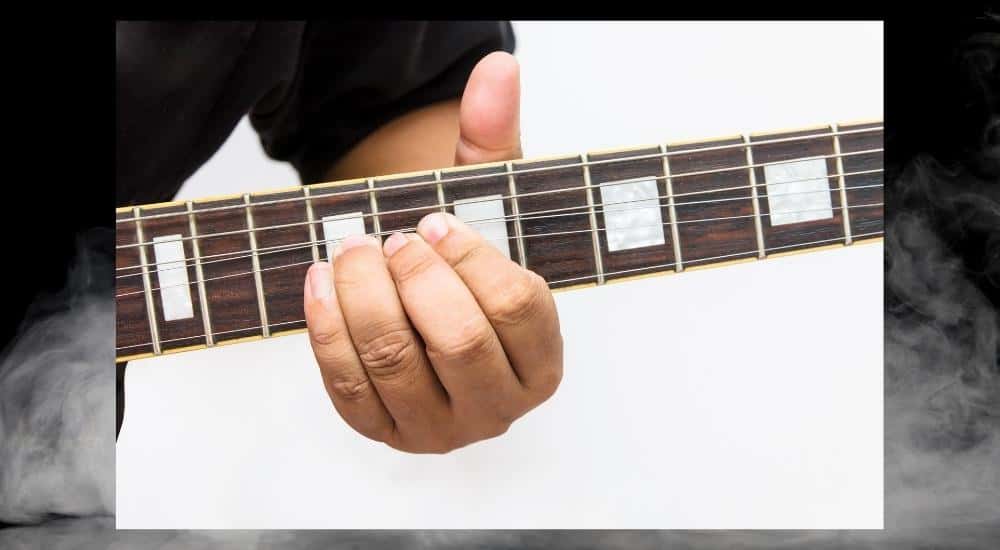
Jazz players, traditional ones anyway, don’t bend like blues players and rock players. They have a specific sound because that’s typically what the genre demands of them. A jazz player is more likely to use hammer-ons and pull-offs rather than bends and dive bombs.
Their style is more fast and clean, so there is little time to bend a note even if you could. This has changed a bit over the years because jazz has been influential in other fusion genres like progressive metal or even jazz fusion, which is kind of like a mix of rock, blues, jazz, and maybe even experimental music.
One such guitar player that comes to mind is Guthrie Govan or Emil Werstler. Both of these players have the jazz influence, particularly Emil who utilizes the gypsy jazz vibe. But both of them use vibrato and bends in a way that traditional jazz players wouldn’t.
That said, traditionally, jazz players and bends weren’t so much of a thing. Looking at a player like Wes Montgomery for instance, I can’t think of a single time I’ve ever heard him use a bend in his music.
A player like Wes was great at harmony, using chords, and improvisation, but bends were not so much his thing compared to someone like BB King, on the other hand, who was the king of bends and vibrato.
2) Thicker Strings Can Supposedly Imitate A Horn Section
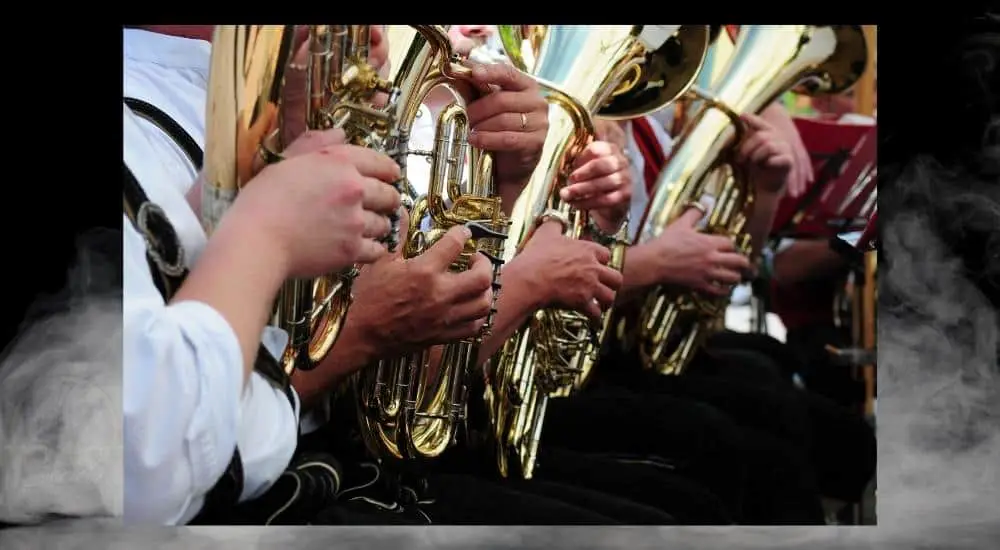
The first breakthrough jazz guitarist was Charlie Christian, and it’s not uncommon for people to say that he imitated the horn section that’s commonly seen in jazz music. Traditional-style jazz players play long, single-note lines in the manner of a saxophone, while blues players emulate the voice.
Later on, a lot of players added things like distortion, bends, and more vibrato for R&B, Blues, country, and rock music. It wasn’t until guitar players moved away from jazz that they started to incorporate more bends. The blues, specifically, is heavy on the bends.
3) Thicker Strings Are Supposedly Louder
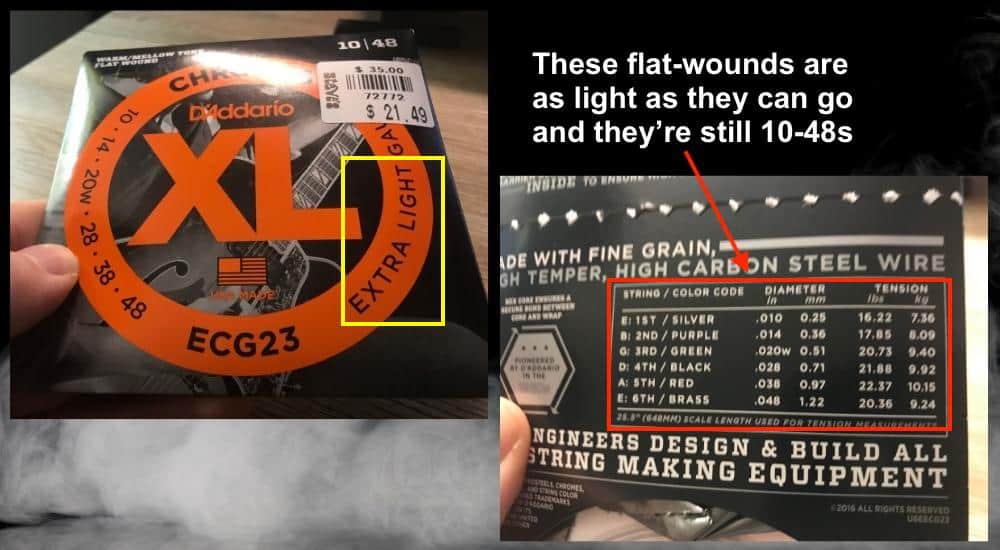
I watched an interview recently with the Weather Report guitarist, Pat Metheny, and he said that the guitar isn’t the instrument of choice among jazz musicians due to the lack of volume and dynamics.
A horn, for instance, can be fairly quiet but it can also be so loud that it takes out a window.
The same thing can’t be said for a guitar. There is a limit in dynamic range (volume), especially if we’re talking about a guitar that isn’t amplified. An acoustic guitar can only be so loud. This brings me to my point, which is that thicker strings are supposedly louder than thinner strings.
Some players believe that thicker strings allow them to play louder, although, I’m not sure how true that really is.
My theory is that thicker strings are probably louder because you have to pluck them harder which results in a louder sound. Whether this is true or not, I don’t know, but it’s one of those ideas that are often repeated as truths.
4) Thicker Strings Allegedly Have More Tone
Similar to the idea about string volume, thicker strings are also supposed to have a better tone. I was one of the guitarists who was duped by this idea because I used thicker strings for years. My favorite ones were skinny top heavy bottoms which are 10-52s from D’Addario or Ernie Ball.
These days, I use 9-42s Elixirs (also on my Product Page) on my guitar tuned to standard tuning, and then I use 10-48s on my ESP Eclipse which is tuned to D-standard – one step lower (more on elixir strings here in my guide).
I find a guitar with lighter gauged strings is just way easier to play in pretty much every way, which means the guitar is more fun too. Rick Beato has a great video on this and you should check it out above.
What Gauge Strings Do Jazz Guitarists Commonly Use?
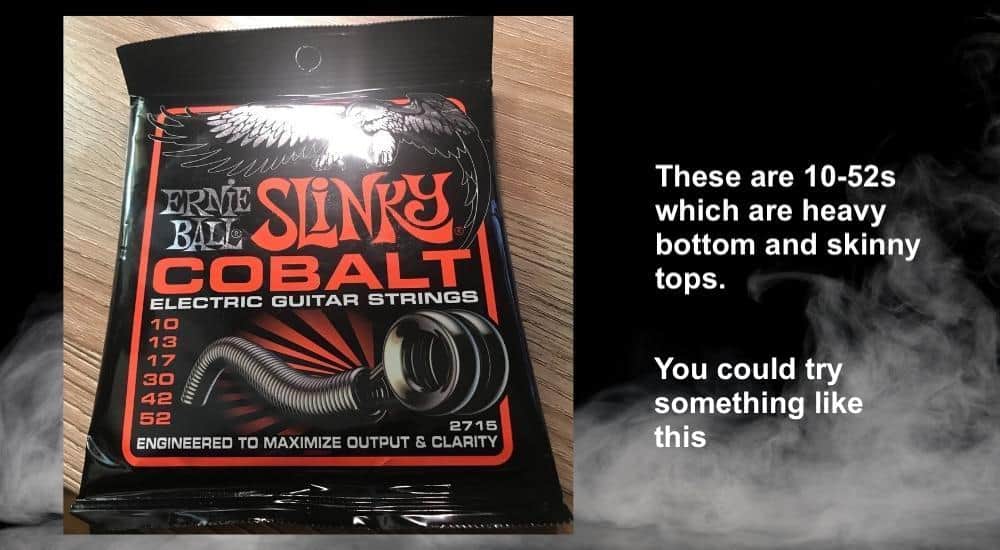
The most common guitar strings used by jazz players are light to medium gauge strings, which are 12-52s or 13-56s. Flat-wound guitar strings, which tend to be much thicker, are considered extra light if they’re 10-48s so that gives you an idea of how heavy jazz players like their strings.
That said, the gauge a jazz guitarist uses is up to the player, but on most sets, you will see them being on the lighter side with a set of 10s and the heavier side with a set of 13s. The larger gauges are said to give a smoother, full tone and are a very popular choice for jazz guitarists.
Extra light jazz strings aren’t super heavy compared to regular guitar strings like 9-42s, but the fact they’re considered “extra light” despite being reasonably heavy tells you something.
Once you’re using medium gauge strings though like 13-56, now you’re in the super heavy range. 13-56s are extremely hard to bend, by the way.
What Strings Are Best For Jazz?
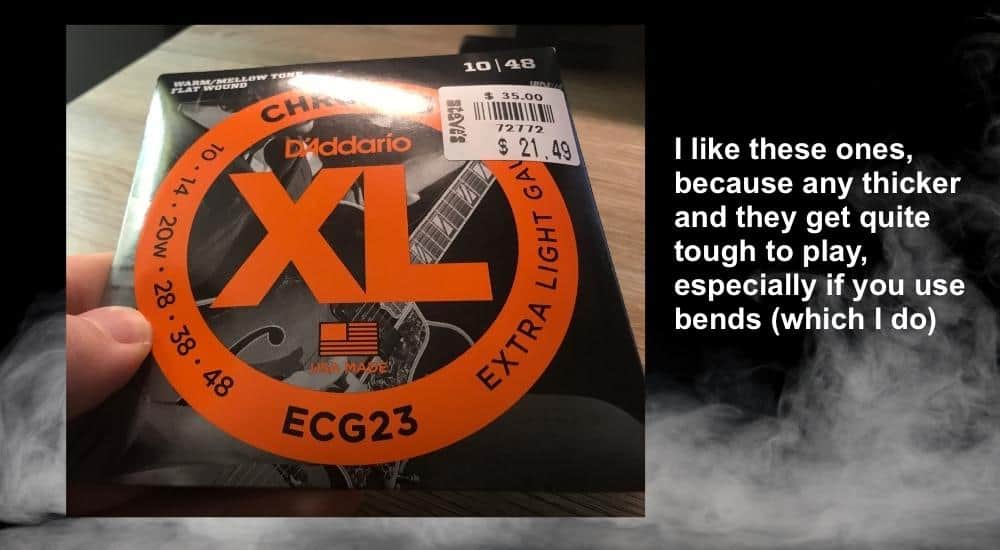
As I just said, choices like what are the best strings are largely subjective. That being said, there are a few features to consider for great jazz strings.
I think that 12-52, flat-wound, guitar strings are the best for jazz because they’re not so heavy that they’re impossible to bend, but they’re thick enough where you get the nice feeling you’re after but they’re also quite warm.
Flat-wound strings are really interesting strings to use and I recommend giving them a shot, particularly if you like a warm, full, clean sound. If you’re into high-gain distortion, however, flat wound strings probably aren’t what you’re after.
What Do Heavier Gauge Strings Do?
Some say that a heavier string will yield a warmer and fuller tone, but you’ll probably hear more tonal differences in the guitar or the player than from the strings. The pickups or the shape of a guitar (acoustic) have a lot more to do with the overall tone than the strings.
You may be able to hear a slight difference, and if you do, then go with the ones you feel represent your tone better.
Like I said in my article on when strings are dead, you can really only get around 6-8 weeks out of a set of non-coated strings without hearing a depreciation in tone so even if you don’t like the strings you’ve put on, you can always change them soon anyway.
Additionally, if you’re new to the guitar – or more specifically, changing your strings on a regular basis and you don’t even know what strings you’re using – check out my article on how to find the gauges with a digital calliper.
Important Things to Note About Thicker Strings and Jazz Guitar
1) Preferences Are Subjective
Like I’ve said before and I’ll say again, everyone has their own idea of what’s the best for a certain practice. It’s up to you to try things out and come to a conclusion on your own. Guidelines and common practices are just a jumping-off point for experimentation.
2) Thicker Strings Require More Effort to Play
If you’re interested in trying out thicker strings, remember that they’re much harder to play. I can’t overstate how much harder they are to play, because they really make quite a difference, especially if you plan on doing a lot of bends and vibrato.
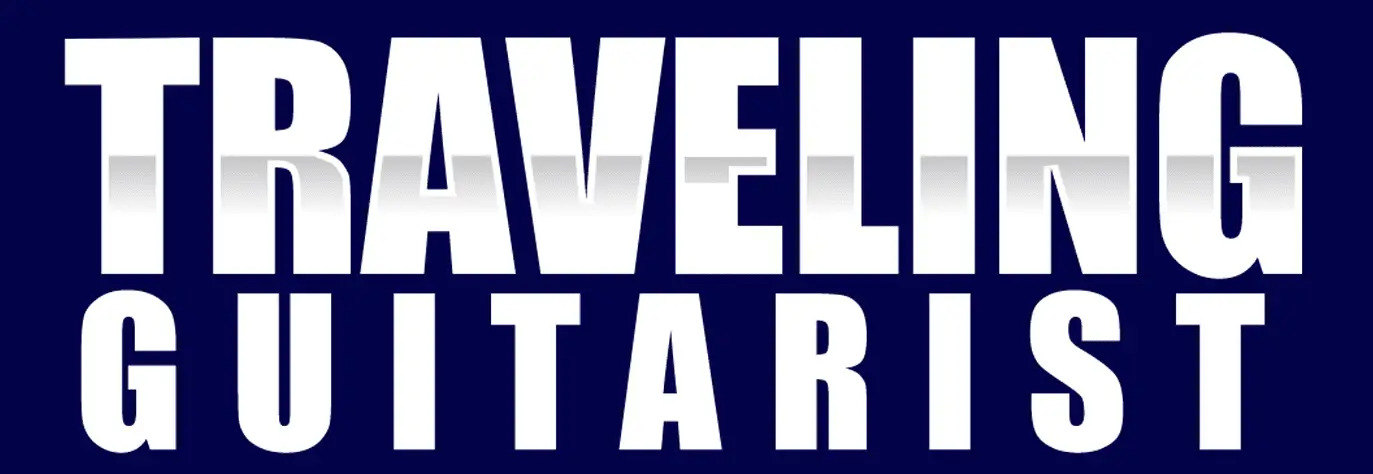
 Written By :
Written By :